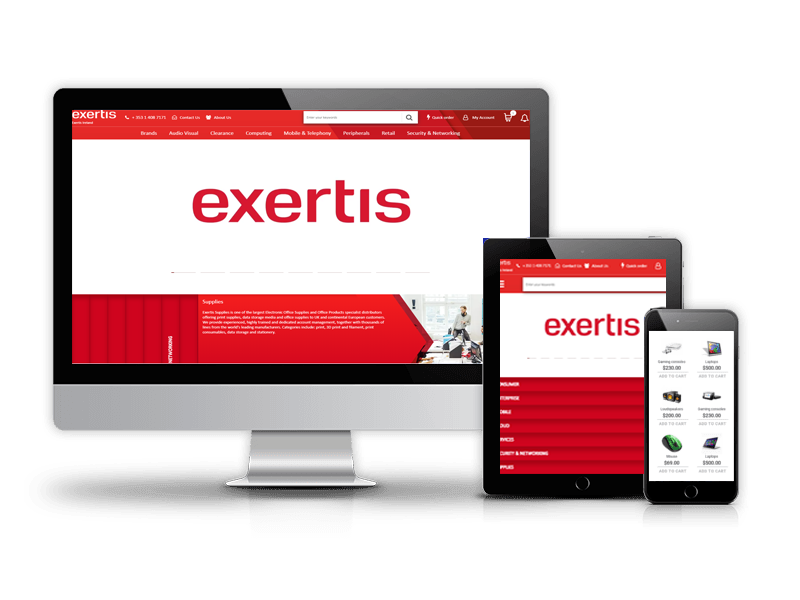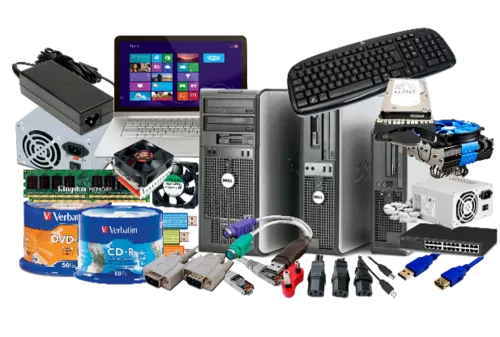|
AREA
|
EXPECTED STANDARDS
|
|
Health & Safety
|
Principle
Ensuring the health and safety of everyone we deal with is fundamental to business performance and long-term business success.
No task is so important that you cannot choose to do it safely.
What This Means
- We will always support you when you choose to work safely.
- If anyone in your business believes safety is at risk of being compromised, they must feel able to intervene and stop the work.
- Our suppliers should comply with all applicable laws and regulations regarding occupational health and safety, and provide a clean, safe and healthy workplace, designed to prevent accidents, injury and illness during the course of work.
- Suppliers working at an Exertis premises must work in a way that (i) assures their own safety and the safety of others and (ii) is in compliance with applicable health and safety requirements including our policies and procedures.
- Suppliers should provide their employees, including new or reassigned workers, with regular and recorded health and safety training.
- Any emergencies that may impact Exertis activities must be reported promptly.
- You will facilitate reasonable HSE inspections by us. You will also provide us with accurate HSE performance information where we request it.
|
|
Employment
|
Principle
Exertis observes internationally-recognised human rights standards including the United Nations Universal Declaration of Human Rights, the United Nations Guiding Principles on Business and Human Rights and the International Labour Organisation’s Declaration on Fundamental Principles and Rights at Work. We ask our suppliers to do the same.
What This Means
Specifically, you should ensure that your employees and other workers are:
- provided with a safe working environment;
- paid fairly and on time for the work they do;
- not subject to any form of duress by their employer, such as having to repay large loans or having their passport retained;
- not discriminated against because of their gender, disability, religion, age, ethnicity, marital status, sexual orientation or any other status protected by applicable law;
- not subjected to any form of slavery; and
- not under the legal minimum age of employment.
You should promptly advise us if you are not able to meet these standards at any point. In many countries, national laws set standards that are at least as high as those set out in human rights standards. Where that is the case, national laws should be followed. However, where national laws do not provide a suitable level of protection, human rights standards should be observed. If a conflict between national law and international human rights standards occurs, we expect you to respect national law while endeavouring to protect human rights.
|
|
Environmental
Protection
|
Principle
We expect you to comply with all laws and regulations that support the protection of the environment.
What This Means
You will ensure that your activities are conducted in compliance with all applicable environmental laws and regulations, including:
- the use of natural resources such as water;
- licencing of certain operations, storage and emissions;
- the safe transport of products;
- the reuse of packaging and other forms of waste; and
- carbon emissions.
You must observe our policies and procedures on environmental protection while undertaking work for Exertis, including regarding spillages or releases of products that have an impact on the environment or on third parties.
|
|
Bribery
& Corruption
|
Principle
You will not be involved in bribery or any other form of corrupt activity.
What This Means
Bribery may exist where a person does not act in the best interests of the organisation that they represent because of some personal benefit they have received or hope to receive from a third party.
You will maintain and communicate suitable policies in your business that make clear that none of your employees should offer, give or accept any bribe.
Specifically, any gifts, hospitality, sponsorship or other benefits that you offer or receive in the context of the work you do for Exertis must be modest and not designed to improperly influence the outcome of any decision.
|
|
Confidential Information
|
Principle
You will not share confidential information inappropriately or use confidential information that should not be in your possession.
What this means
While we always want to hear about developments in the marketplace, we do not want you to share with us confidential information that we are not permitted to receive. And, equally, you must not share with any third party any confidential information that you have about us. If you inadvertently send us confidential information that we should not have received, you must notify us immediately. And, if you inadvertently share confidential information about Exertis with any third party, you must again immediately let us know.
|
|
Data Protection & Privacy
|
Principle
You will collect and use personal information carefully and in compliance with relevant data protection and privacy laws.
What this means
We may collect information about our employees, customers or other individuals and you may process that data on our behalf. Where this is the case, you must always follow relevant data protection and privacy laws and ensure that all of your employees who handle that information understand that it should be used securely and for legitimate reasons. You must maintain suitable IT and management controls to ensure personal information is properly used. You must let us know immediately if you have any incidents – for example, a data security breach – relating to information you are processing on our behalf.
|
|
Competition
(Anti-Trust) Laws
|
Principle
You will take all steps reasonably necessary to ensure that you are fully compliant with applicable competition (also known as anti-trust) laws.
What This Means
You accept that Exertis will always act independently in making its commercial decisions.
As stated in section 5, you must not share confidential information about us with any of our competitors and you must not share with us confidential information that you have about our competitors. It is against the law for us to agree with you what price we will sell your products at or to have any agreement or arrangement that puts a floor on the prices we sell them at.
The same also applies to our customers. It is against the law for us to tell them what price they can sell your products at or to require or incentivise them to keep their prices above a certain level. You will ensure that you provide suitable training on relevant competition laws to relevant employees within your business.
|
|
Tax Compliance
|
Principle
You will not engage in or facilitate any deliberate underpayment of taxes that are due.
What this means
You will correctly declare all income and be transparent with tax authorities about your transactions. You will take reasonable steps to prevent your employees, contractors or representatives from facilitating tax evasion by third parties. You will notify us immediately where you have concerns regarding any action taken by your employees, contractors or agents in relation to your dealings with Exertis, or where you suspect that another party in our supply chain may have engaged in tax evasion.
|
|
Intellectual
Property
|
Principle
You will not sell products or provide services that deliberately or clearly infringe the intellectual property rights of any third party.
What this means
You will respect the intellectual property rights of third parties by only using trademarks, designs and technology that have been legitimately acquired and licensed.
|
|
Product Safety & Quality
|
Principle
We respect the rights of the consumers of the products we sell. Every product you sell us must be safe, comply with relevant standards and be accompanied by legally-required product information.
What this means
You must ensure that any product you sell us is safe for the purpose for which it is intended and complies with all relevant standards for that product.
You will provide or make available to us relevant product safety documentation, as may be required by law.
You must also notify us immediately where you have any concerns that a product may be unsafe or not compliant with standards relevant to it.
Where relevant, you will work to address satisfactorily customer concerns about the products you sell us.
|








